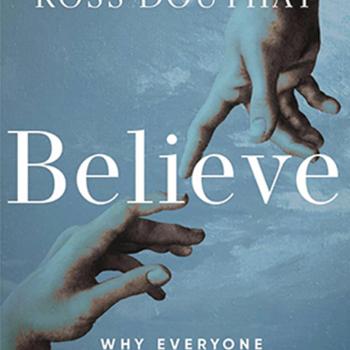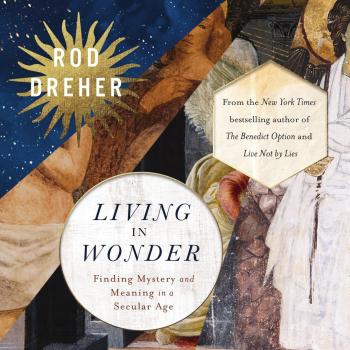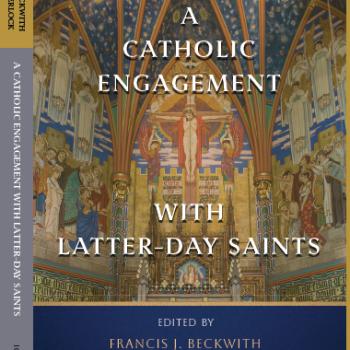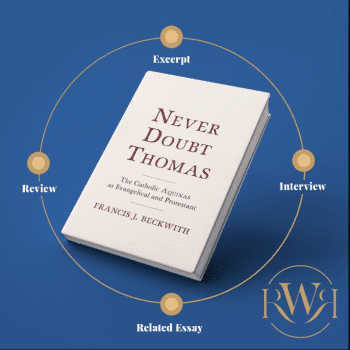A year ago tomorrow, April 24, my friend Hadley Arkes was received into the Catholic Church. My wife, Frankie, and I were present at the Mass in which Hadley received the sacraments of baptism, confirmation, and holy communion.
In the recent issue of Touchstone, Marcia Segelstein interviews Hadley about his conversion. You can find it here. Here’s an excerpt:
MS: How has moral relativism come to be so predominant?
HA: I think the erosion of natural law and the tendency toward moral relativism go back to ancient times with ancient skeptics making the argument for relativism. You can see the arguments surfacing in Plato’s Protagoras. In the Anglo-American law, it was getting accelerated from the early part of the twentieth century. It was bound up with historicism and the notion taking hold in Germany that we could know things only within their historical context, i.e., that certain things will be made clear only as history unfolds.
My late professor, Leo Strauss of the University of Chicago, wrote his critical book, Natural Right and History, in 1953. That was mid-century and he was already standing against the currents of relativism. Already they were deeply at work. Here was a country established on the Declaration of Independence—on truths grounded in nature, objective moral truths, self-evident truths—and yet falling into the wave of relativism. Strauss spoke about the effect of German philosophy on America—and here I’m paraphrasing—that it would not be the first time that a country defeated on the battlefield imposed on the victor the yoke of its own thought. Here we defeated the Germans, and yet German philosophy in its worst forms was taking hold in this country.
In the course I teach at Amherst that became the basis for the book First Things, I tell my students the biblical story of God instructing Elijah to journey to Damascus. Ultimately it is Elisha who fulfills this directive, traveling there to tell Hazael that “the Lord has shown me that you are to be king over Syria,” and that the current king, Ben-Hadad, “shall certainly die.” One commentator thought that this story, dating to the sixth century b.c., was a sign of how early the Jews were committed to monotheism. I ask the students what the connection is with moral relativism.
The answer is that a God who could tell a prophet to cross the lines of one jurisdiction to cashier a leader in another place was obviously not one of those local gods known to antiquity. This was evidently a God with universal jurisdiction. After all, I ask, did the same God who authored a universal law of physics author separate morals for Zanzibar and Jersey City? And what were the Ten Commandments? Were they municipal regulations, meant only to govern the immediate environs of Mt. Sinai?
Then I ask how many of them were raised in households that could be called Christian or Jewish or even Islamic. Almost all the hands go up. And yet, how is it that most students arrive at college with the assumptions of moral relativism, of cultural relativism? My question to them is, why do they think that the doctrines of cultural relativism have a firmer hold on them—or have been more deeply absorbed by them—than the logic of that monotheism in which they’ve been raised?
Read more here.
(In picture: Hadley and his confirmation sponsor, Michael Novak, 24 April 2010)













